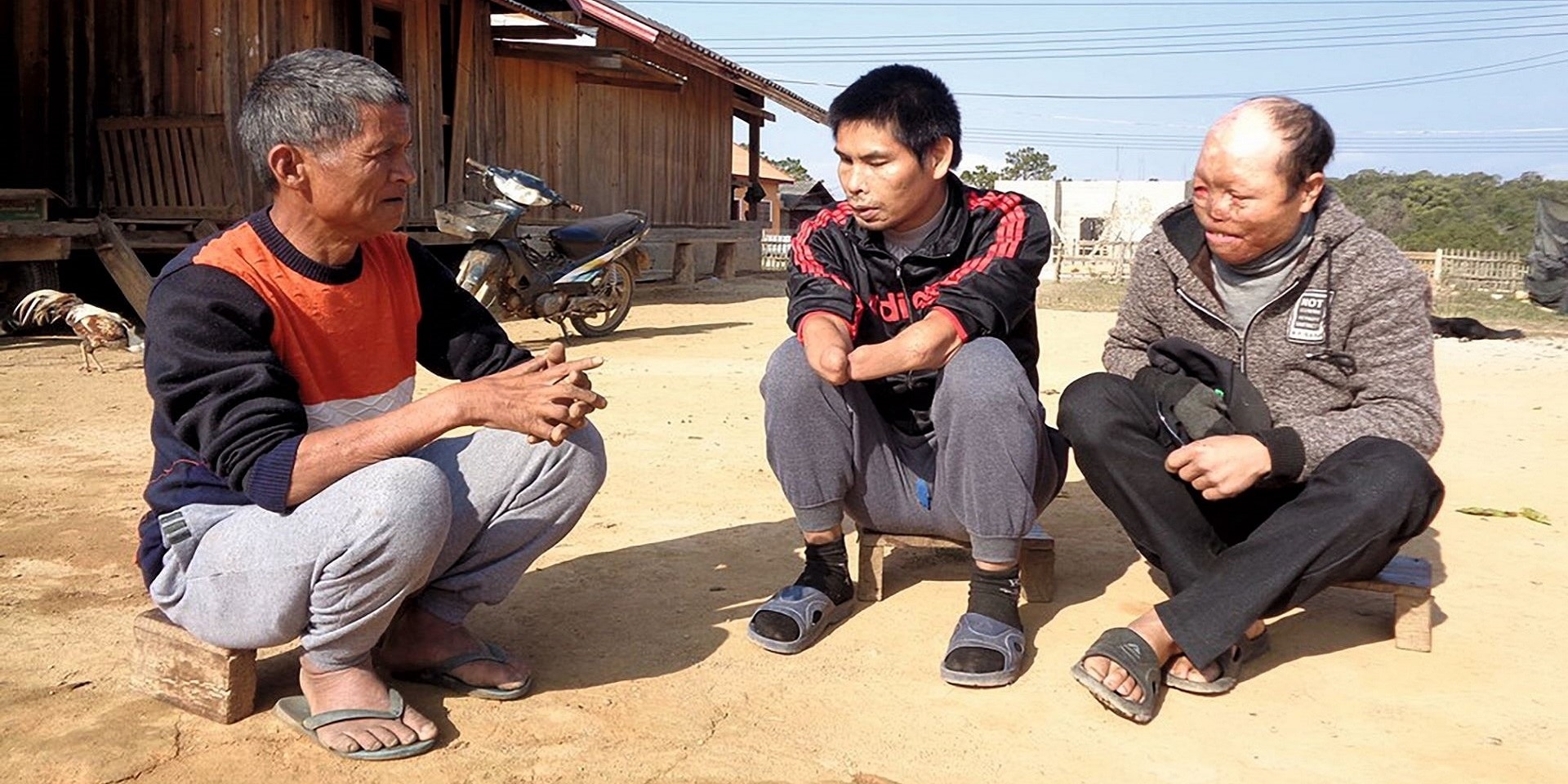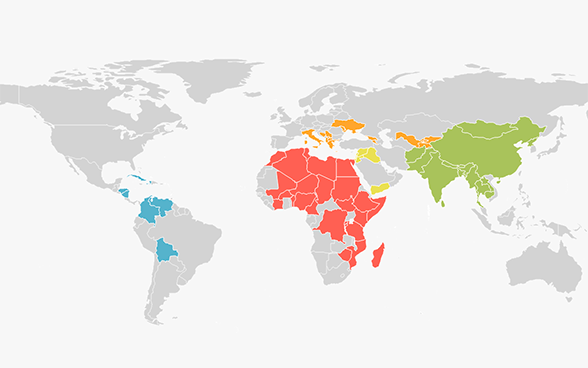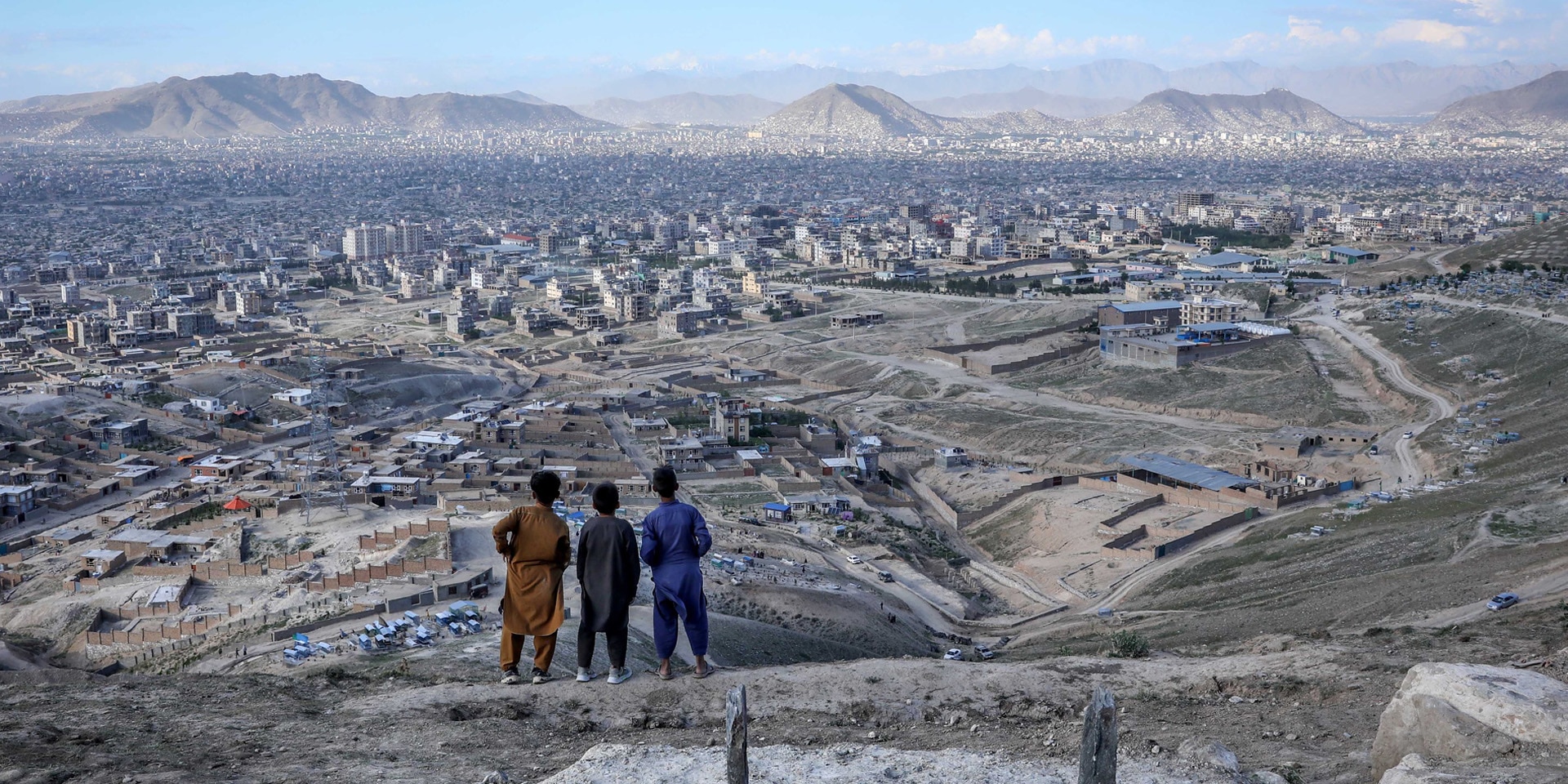Persons with disabilities should be heard – and international development cooperation is no exception
Poverty and disability form a vicious circle. More than 80% of persons with disabilities in developing regions live below the poverty line. The United Nations' International Day of Persons with Disabilities on 3 December is intended to raise awareness of the issues they face. Through its projects in Burkina Faso and Bangladesh, Switzerland creates prospects for persons living with physical, intellectual or mental impairments. This work is particularly important in the age of COVID-19.
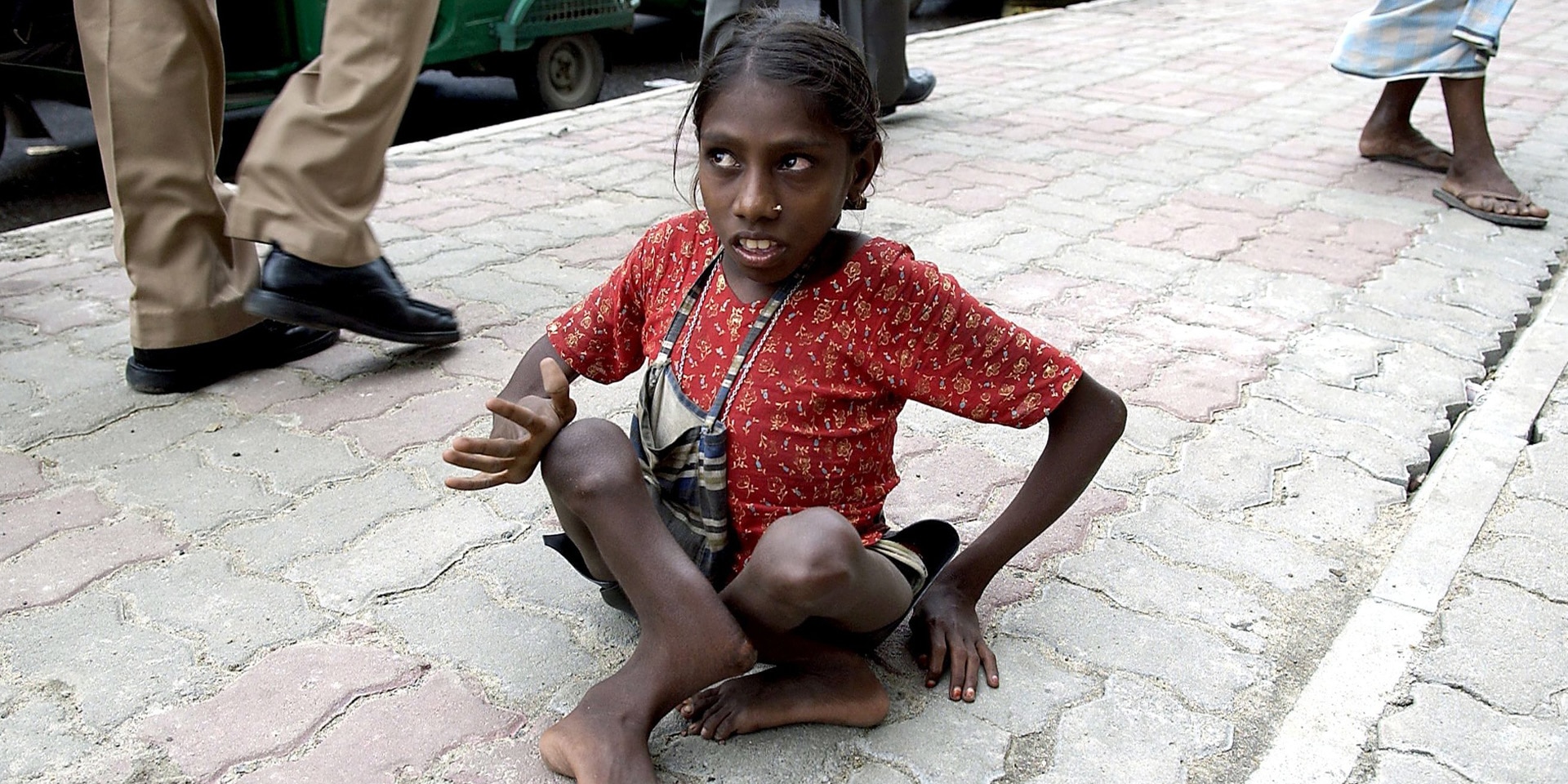
The UN Convention on the Rights of Persons with Disabilities calls for the inclusion of persons with disabilities in international cooperation. © Keystone
People who cannot walk, but use a wheelchair – those who do not hear well, but do not have a hearing aid – others who have an intellectual impairment and are unable to explain themselves: one billion people world-wide live with a disability – four out of five of them in the Global South. Women and children with a disability who live in a developing country are among the most vulnerable and disadvantaged of all. People who live in poverty are more likely to be disabled than those who are rich, because disability is often caused by malnutrition and poor access to healthcare. They lack the money for surgery, or are entirely unaware that an eye condition such as a cataract can be treated. In addition, both physical and mental impairments are frequently the consequence of civil war or incidents with anti-personnel mines or cluster munitions. In 2020, almost half of all victims of cluster munitions in Syria, Iraq and South Sudan were children.
Accessible emergency COVID-19 assistance in Burkina Faso and Bangladesh
In northern Burkina Faso, the SDC is supporting non-governmental organisations Christoffel Blindenmission, CBM, and Fairmed, which are running a COVID-19 emergency assistance project as alliance partners. This poor region of the country is where many internally displaced persons live, including those living with impairments of all kinds. They were hit especially hard financially by the earlier pandemic-related restrictions. The project has facilitated cash transfers for 450 households, a quarter of which are home to someone with a disability. The cash is theirs to do with as they wish to help themselves. Families use it to buy what they most urgently need, such as food, medical assistance, or a small farm animal to help them build a livelihood. In addition, project staff raise awareness among local authorities and regional organisations of the special needs of persons with disabilities, as well as accessible COVID-19 prevention measures.
The SDC also worked with CBM and Fairmed in Bangladesh, where from autumn 2020 to mid-2021 it funded an inclusive project to combat the pandemic. 'Inclusive' in this sense means that the concerns of persons with disabilities were considered at all levels. These individuals were offered psychological support in addition to immediate financial assistance.
There is still much to do
Persons with a disability have only limited access to healthcare services, rehab programmes, education and work. The situation is particularly critical for children, whose development is held back by social, cultural and physical barriers. According to UNESCO, in developing regions less than 2% of all children with a disability attend school.
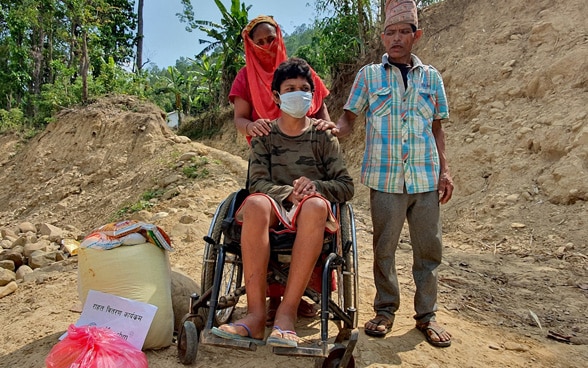
Persons with a physical or intellectual impairment are more often affected by marginalisation, social isolation, violence and abuse than those who do not have a disability. The physical or intellectual impairment is only part of the problem here. The general environment is where the greatest barriers arise. Many places lack the laws, resources, knowledge and opportunities to reduce these barriers. However, it would be a huge step towards inclusion if disabilities were to be considered right from the start, in pre-school, school, house and apartment construction, at the workplace and in leisure time.
The SDC intends to make measures to support those with disabilities an integral part of international cooperation in the future. To do this, it needs a better system of information, and data on the situation of those affected in developing countries.
The UN Convention on the Rights of Persons with Disabilities
Switzerland ratified the UN Convention on the Rights of Persons with Disabilities (CRPD) in 2014. In doing so, it committed to inclusion for persons with disabilities not just domestically, but also in its development cooperation and humanitarian aid work. The purpose of the CRPD is ensure that persons with disabilities around the world are ensured the full and equal enjoyment of all human rights and fundamental freedoms, and that their inherent dignity is respected.
SDC supports inclusive programmes run by development organisations and their alliances, such as those with the Christoffel Blindenmission CBM and Fairmed. It also has its own inclusion officer, and is a member of the Global Action on Disability (GLAD) network.
National level
At national level, the CRPD is implemented by the federal government, the cantons and the communes. On 22 June 2011, the Federal Council issued formal guidelines on the employment and inclusion of persons with disabilities in the Federal Administration. These are implemented in cooperation with the Federal Bureau for the Equality of People with Disabilities and the FDFA Section for Equal Opportunities and Global Gender Issues. Persons with disabilities and their particular needs are now an established element of the FDFA's 2021–2028 action plan on equal opportunities, diversity and inclusion at work.
Switzerland’s International Cooperation Strategy
By pursuing its International Cooperation Strategy 2021–24, Switzerland helps to further equality for the disadvantaged, reduce poverty, and implement the 2030 Agenda. Indeed, it is crucial to persons with disabilities that the goals of the 2030 Agenda are achieved. Particularly important is SDG 10, which calls for the social, economic and political inclusion of all, irrespective of age, sex, disability, race, ethnicity or origin.

